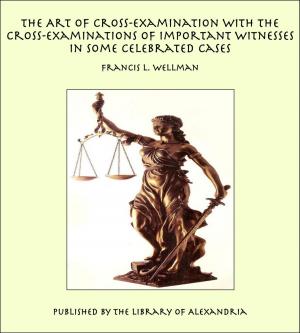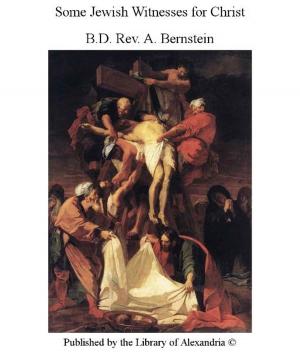Ethics Part II: Of the Nature and Origin of the Mind
Nonfiction, Religion & Spirituality, New Age, History, Fiction & Literature| Author: | Benedict de Spinoza | ISBN: | 9781465502728 |
| Publisher: | Library of Alexandria | Publication: | March 8, 2015 |
| Imprint: | Language: | English |
| Author: | Benedict de Spinoza |
| ISBN: | 9781465502728 |
| Publisher: | Library of Alexandria |
| Publication: | March 8, 2015 |
| Imprint: | |
| Language: | English |
DEFINITIONS. I. By body I mean a mode which expresses in a certain determinate manner the essence of God, in so far as he is considered as an extended thing. (See Pt. i., Prop. xxv. Coroll.) II. I consider as belonging to the essence of a thing that, which being given, the thing is necessarily given also, and, which being removed, the thing is necessarily removed also; in Other words, that without which the thing, and which itself without the thing, can neither be nor be conceived. III. By idea, I mean the mental conception which is formed by the mind as a thinking thing. Explanation.—I say conception rather than perception, because the word perception seems to imply that the mind is passive in respect to the object; whereas conception seems to express an activity of the mind. IV. By an adequate idea, I mean an idea which, in so far as it is considered in itself, without relation to the object, has all the properties or intrinsic marks of a true idea. Explanation.—I say intrinsic, in order to exclude that mark which is extrinsic, namely, the agreement between the idea and its object (ideatum
DEFINITIONS. I. By body I mean a mode which expresses in a certain determinate manner the essence of God, in so far as he is considered as an extended thing. (See Pt. i., Prop. xxv. Coroll.) II. I consider as belonging to the essence of a thing that, which being given, the thing is necessarily given also, and, which being removed, the thing is necessarily removed also; in Other words, that without which the thing, and which itself without the thing, can neither be nor be conceived. III. By idea, I mean the mental conception which is formed by the mind as a thinking thing. Explanation.—I say conception rather than perception, because the word perception seems to imply that the mind is passive in respect to the object; whereas conception seems to express an activity of the mind. IV. By an adequate idea, I mean an idea which, in so far as it is considered in itself, without relation to the object, has all the properties or intrinsic marks of a true idea. Explanation.—I say intrinsic, in order to exclude that mark which is extrinsic, namely, the agreement between the idea and its object (ideatum















